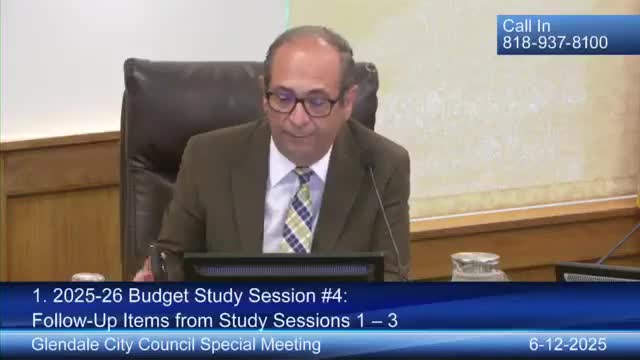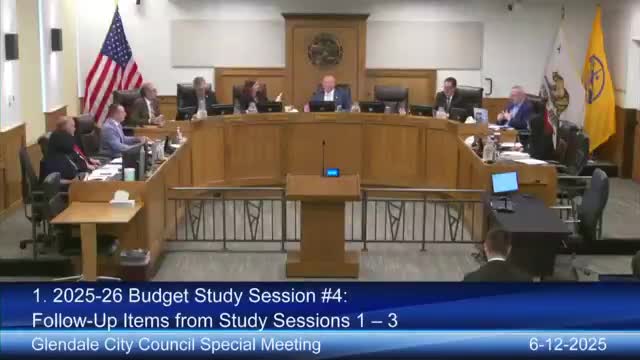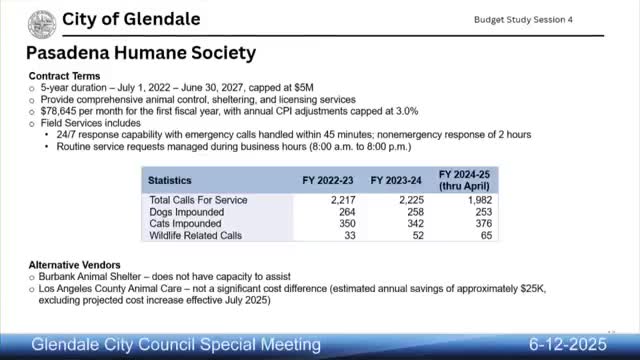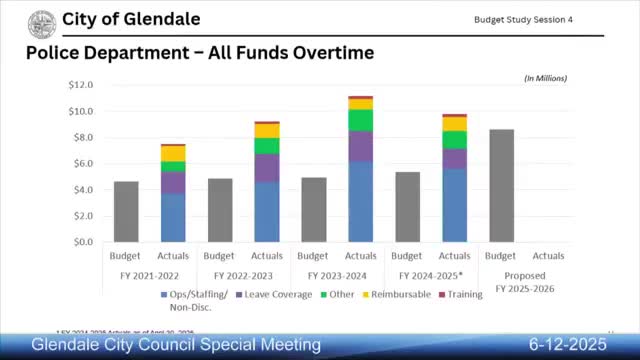Article not found
This article is no longer available. But don't worry—we've gathered other articles that discuss the same topic.

Glendale staff outline $12.7 million shortfall; council told to weigh parking fee, lease renegotiations and defunding 33 vacant positions

Council motion to expand Commission on the Status of Women moves toward ordinance and dedicated staff; council and staff disagree on timing and housing of the X

Council told Pasadena Humane contract costs about $1 million a year; staff to seek renegotiation ahead of 2027 extension expiry

